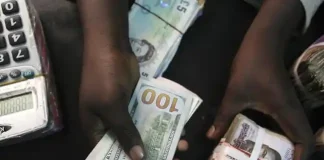The foreign exchange market (also known as the currency market or forex) is a worldwide decentralized or over-the-counter (OTC) market where currencies can be traded. This market determines the foreign exchange rate. All aspects of currency trade at the current or established rates are included.
The key participants in this market are large foreign banks. Financial centers worldwide function as anchors of trading between multiple types of buyers and sellers around the clock, except at weekends.
Foreign exchange markets do not determine a currency’s absolute value but rather establish its relative worth by setting the market price of one currency if exchanged for another. For example, 1 USD is worth X CAD, CHF, or JPY (etc.).
The global exchange market is the most liquid financial market in the world.
Traders include large banks, central banks, currency speculators, corporations, governments, and other institutions. The global foreign exchange and related markets’ average daily turnover is rapidly increasing. With the addition of online trading, the amount of traders has grown exponentially.
According to the 2021 Triennial Central Bank Survey, coordinated by the Bank for International Settlements, the average daily turnover was $6.6 trillion in April 2021 (compared to $1.9 trillion in 2004).
The foreign exchange market is unique because of
- its vast size and liquidity
- a large number of participants
- the wide geographical dispersion
- the variety of factors that affect exchange rates
- the 24-hour operation
There are three types of participants in the foreign exchange market:
1. Hedgers: Hedgers use the foreign exchange market to offset the risk of foreign currency transactions. For example, a U.S. importer might pay the Japanese yen to buy goods from Japan and then (to hedge) immediately sell yen and buy U.S. dollars to protect against any fall in the yen’s value.
2. Traders: Traders use the foreign exchange market to take advantage of fluctuations in currency values. For example, a trader might buy U.S. dollars when they think the dollar is undervalued and then (to hedge) immediately sell dollars when they believe it is overvalued.
3. Arbitrageurs: Arbitrageurs take advantage of price differences in different markets. For example, an arbitrageur might buy dollars in the United States and then immediately sell them in Japan, making a profit on the difference in the two countries’ interest rates.
The foreign exchange market is open 24 hours, five days a week (except for holidays).
London, New York, and Tokyo are the world’s three biggest trading centers. The foreign exchange market is open 24 hours a day from 5 p.m. EST Sunday until 4 p.m. EST Friday in the U.S.
Tokyo opens at 7 p.m. EST and closes at 4 a.m. EST, London opens at 3 a.m. EST and closes at noon EST, New York opens at 8 a.m. EST and closes at 5 p.m. EST.
The foreign exchange market is open from Sunday evening until Friday afternoon in the United States (UTC-5).
The international scope of currency trading means that there are always active markets, even when one’s own country is not participating.
The international scope of currency trading means there are always forces affecting exchange rates. Even if a country is not participating in foreign currency trading, news and events can still impact its currency.
Factors that affect exchange rates:
1. Macroeconomic factors: These are broad economic factors that can affect the demand for a currency—for example, a country’s interest rate or inflation rate.
2. Political factors: These can affect a country’s stability and economic and trade relations with other countries. For example, a country’s relations with its trading partners or political stability.
3. Economic factors: These can affect a country’s economy and the demand for its currency—for example, a country’s GDP or trade balance.
4. Market psychology: This is how traders feel about a market or a currency. For example, if there is a lot of buying activity in a market, it might be seen as bullish (positive) for that market or currency.
Now that you know the basics of trading stocks online, you can begin to build your trading strategy and trade stocks like a pro!













